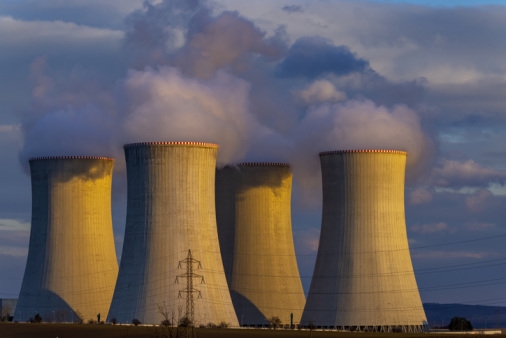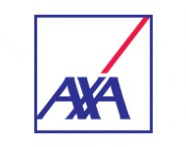Nuclear energy: A cornerstone of France’s energy strategy

Authored by AXA XL’s Regional Manager, South Europe, Julien Guénot and Head of Energy Transition Vicky Roberts-Mills
In 2022, the French government announced plans to construct six new EPR (European Pressurized Reactor) nuclear reactors, with the potential for an additional eight, and to extend the life of existing reactors where safe and feasible. This decision marked a significant reaffirmation of France's long-standing reliance on nuclear power, even as other countries undertake ambitious efforts to restructure their energy ecosystems.
Unique among major industrialized countries
France currently operates 56 commercial nuclear reactors at 18 sites spread across the country. These reactors supply about 70 percent of France’s electricity, earning France the distinction of being the world's largest per capita producer of nuclear energy. This heavy reliance on nuclear power has historically enabled the country to maintain energy independence—it has limited domestic fossil fuel resources—with lower levels of CO2 emissions compared to other countries with similar economic profiles.
However, the sector faces challenges, including aging infrastructure and the need for significant investments in safety upgrades and new technology. Perhaps unsurprisingly, the government’s decision to support and expand France’s nuclear energy sector was met with mixed reactions.
On one side, concerns were expressed about safety, especially in the aftermath of the 2011 Fukushima disaster, and the unresolved issues surrounding nuclear waste management. Some critics also argued that the economic case is undercut by rapidly falling costs for renewable energy technologies like wind and solar.
Conversely, supporters emphasized the need for energy security and independence, especially in light of geopolitical tensions affecting fossil fuels. Proponents also argued that nuclear energy provides a stable, low-carbon source of electricity that complements intermittent renewable sources and will help France meet its climate goals.
A multifaceted approach
In addition to building new EPRs, France’s state-owned energy company Électricité de France (EDF) is working to develop Small Modular Reactors (SMRs) to complement large-scale nuclear plants and potentially for export. These smaller reactors require substantially less upfront investment, can be built more quickly and adapted for different uses, including desalination, district heating and some industrial processes. SMRs also promise enhanced safety features, such as passive safety systems that rely on natural processes like gravity and convection to maintain safe conditions in the event of a malfunction.
Although EDF is at the forefront, several new companies are also planning to construct SMRs, supported by the €1.2 billion the government has allocated to advance innovation in the nuclear industry as part of “France 2030”, an ambitious national investment plan that aims to boost France's technological innovation and industrial competitiveness, including efforts to decarbonize the economy. These projects include a 40 MW molten salt reactor and a 30 MW lead-cooled reactor.
The government and EDF are also investing heavily in R&D activities, particularly in Generation IV technologies and nuclear fusion. The aim is to overcome current technological and economic limitations and position France as a leader in next-generation nuclear technology. In 2018, AXA XL was selected as the lead insurer for the key components in the ITER fusion reactor, which a multinational consortium is fabricating in the south of France.
Finally, France continues to promote international cooperation in nuclear standards, safety, and technology development. Through partnerships and agreements, France supports global nuclear safety improvements and secures markets for its nuclear technology exports, particularly in developing countries seeking to expand their energy capacities without increasing carbon emissions.
Managing and mitigating nuclear risks
France's robust framework for managing and mitigating nuclear risks is vital to the government's plans. The foundation of this framework is a national insurance pool known as Assuratome.
Assuratome was founded in 1957 as an “insurers association”. It became an “economic interest group” in 1969 and adopted the Assuratome name in 1995. AXA was one of the organization’s founding members. It is a leading example of how national insurance pools have emerged in recent decades as an effective way to cover risks too large or complex for individual insurers to handle alone. Spreading the risks among a greater number of stakeholders ensures that sufficient resources are available to address high-impact claims and, in the case of Assuratome, helps stabilize the insurance markets supporting nuclear energy operators.
Assuratome is explicitly aligned with the provisions of the Paris Convention, an international agreement introduced in 1960 that established a framework for liability and compensation for damages caused by nuclear incidents. According to the convention, the operator of a nuclear installation is solely and automatically liable for any harm resulting from a nuclear incident without any need for victims to prove negligence. This principle of strict liability ensures prompt compensation and avoids lengthy litigation.
Assuratome is a co-reinsurance pool that currently has 33 members. It doesn’t bear the risk directly but, like a managing general agent, manages it on behalf of its members, all of whom are carefully vetted against detailed criteria, including the adequacy of their capital reserves and their experience in the nuclear industry. Its policies cover activities excluded from traditional insurance contracts and encompass nuclear operator liability, nuclear transport liability and construction products, particularly during extension and upgrade work.
Under French law, companies bound to the provisions of the Paris Convention—which has been substantially amended and broadened since its inception—must provide financial guarantees of €700 million. If more capacity is needed, the French government will contribute an additional €500 million and the signatory states of the Paris Convention another €300 million according to the “principle of solidarity”. Thus, the ultimate capacity for a nuclear incident in France currently stands at €1.5 billion.
The €700 million financial guarantees nuclear operators are obligated to provide are commonly done via an insurance contract with an insurer like AXA XL, which then reinsures 100% to Assuratome. This arrangement has proved to be highly productive and effective as it combines insurers’ underwriting and claims management capabilities with Assuratome’s in-depth technical expertise (many of their engineers come from the submarine sector) to support cedants in, for example, understanding the technical nuances of these highly complex facilities.
Also, radiation risks aren’t limited to nuclear power plants. Other activities involving radioactive materials include medical imaging, therapeutic treatments and radiography (e.g., cargo screening), and mishandling these substances can lead to accidental exposures. Here, too, Assuratome offers solutions since these activities are often excluded in traditional insurance contracts. Specifically, Assuratome can provide nuclear operator liability products, nuclear transport liability products and coverages for construction projects, for new builds as well as upgrades. Clients also benefit from Assuratome’s technical expertise, especially in helping maintain rigorous safety protocols.
As a French market leader in risk coverages for nuclear operators, AXA XL brings extensive knowledge of these operations and their risks, large-scale crisis management capabilities and a highly experienced claims management team. We remain committed to supporting the nuclear sector, including France's ambitious path to combining traditional and innovative energy solutions to meet its energy needs sustainably.
About AXA XL
AXA XL is the P&C and specialty risk division of AXA which provides property, casualty, professional and speciality products to industrial, commercial and professional firms, insurance companies and other enterprises, here in the UK and throughout the world. With underwriting teams based in the US, UK, EMEA and Asia Pacific regions, we can make decisions close to the markets you serve and work with you to tailor cover to your business needs.
We help businesses adapt and thrive amidst change. Rather than just paying covered claims when things go wrong, we go beyond protection into prevention so your business can go beyond the unexpected.

